I'm working with an existing codebase, and the existing code calls for a date from an endpoint. The expected value is an ISO string (i.e. "2020-01-09T07:41:02.6025984-05:00"):
// in my sagas:
export function* handleGetServerTime(): Generator {
try {
const response = (yield call(
axios.get,
"/api/server/time"
)) as AxiosResponse;
// Format the response time string into a Date object
const time = new Date(response.data);
console.log(time);
yield put(ActionCreators.GetServerTimeSuccess.create(time));
} catch (error) {
// ...
}
}
As you can see, the code takes the ISO string, creates a new Date from it, and then sends it to the action and reducer, which saves it to the store as a new Date.
When I open up my redux devtools, I see an ISO timestring again:
However the console.log statement above prints what we usually see when we run a new Date: Mon Apr 05 2021 11:56:25 GMT-0700 (Pacific Daylight Time). I get the same thing when I go into my console and check store.getState().somewhere.timeFromServer.
Does redux devtools have some default behavior to show a Date object as its ISO string?
Note I am not at all a fan of this programming pattern - I would rather store the raw ISO string that comes back from the server, and do any date manipulation in my front end code. This has thrown me for a loop all morning because the ISO string f=coming from the server and the one being shown in the devtools are not the same! Converting from an ISO string to a new Date and back again will strip the UTC time offset, which I don't want to loose.